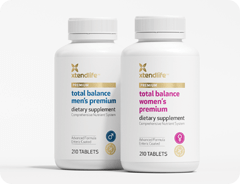These include...
- Picky eaters who refuse the nutrient-dense foods on their plates.
- Children who don’t have access to regular, well-balanced meals, and tend to eat on the go.
- Children who play a lot of sports or those who are highly active.
- Children who have chronic illnesses such as digestive problems that might hinder the absorption of nutrients or take medications that may impact how nutrients are used.
- Children who drink a lot of soft drinks.
- Children who are on a restricted diet, including those who are gluten-free, dairy free or vegetarian.
Better nutrition reduces cravings
According to the Centers for Disease Control and Prevention, 17 percent of children in the U.S. are now obese, and diets high in fat… and sugar-laden between-meal snacks… as opposed to healthy, regular meals – heavily contribute to this. (Ref. 2)
As obesity in children has risen, so has the number of cases of type 2 diabetes in kids, setting the stage for a lifetime of health problems that could have been avoided through good nutrition.
By not getting the nutrients their bodies need, children crave more and more food, but never fill the void if they’re not making smart choices. On the other hand, a child whose body is receiving the nutrients it needs will be less likely to have junk food cravings and will be more likely to forego unhealthy foods naturally. Children can still be drawn to junk food, but they will be less likely to yearn for excessive amounts.
What are the most important nutrients for children?
The most important vitamins for children, experts say, include:
- Vitamin A. Vitamin A is important to help support growth, skin and tissue repair, along with eye heath. Bright yellow and orange vegetables are packed with this antioxidant.
- Vitamin B. This nutrient is a vital one to help support healthy red blood cells and plays a role in helping to maintain the body’s metabolic function.
- Vitamin C. This vitamin helps support skin health and the immune system.
- Vitamin D. The sunshine vitamin (the sun’s rays are the best source) helps support bone health and teeth development.
- Calcium. Not only is calcium important for maintaining healthy bone function and teeth development, not getting enough of this important mineral may lead to brittle bones or osteoporosis later in life. (Ref. 3)
However, this is really the tip of the iceberg and if your child ticked any of the boxes in the first list mentioned, they are likely to be at risk of inadequate nutrition and may be missing out on around 20-30 essential nutrients daily!
Total Balance for total health

Given the many reasons why your children might not be getting the nutrients they need, it makes sense to choose a multi-nutrient supplement that is designed especially to suit their nutritional needs.
Supplements such as Total Balance Children’s, provide an ideal way of getting more valuable nutrients into children’s diets.
Our Total Balance Children’s formula contains 85 nutrients known to help support growth and development and general wellness, so your children will be at the top of their game, even if they don’t eat perfectly each day.
This comprehensive and advanced supplement will also fill in the nutritional deficiencies of picky eaters to help support your child’s mental and physical development, ready to take on the world, or at least the new piece of equipment on the playground. The world can come later.
References
1. http://www.webmd.com/parenting/vitamins-for-kids-do-healthy-kids-need-vitamins2. http://www.cdc.gov/healthyyouth/obesity/facts.htm
3. https://www.healthychildren.org/English/ages-stages/gradeschool/nutrition/Pages/Vitamin-Supplements-and-Children.aspx


 Supplements
Supplements Superfoods
Superfoods Bundles
Bundles









